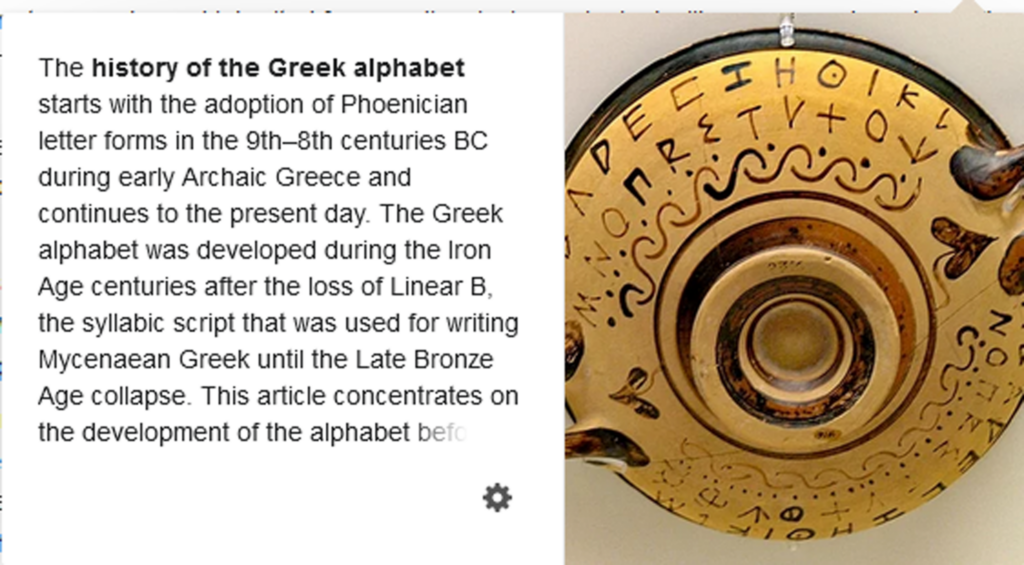How Yeshua understood Abba
It is true that in the Jewish Talmud and other Jewish documents we find statements such as “When a child experiences the taste of wheat (i.e., when it is weaned), it learns to say ’abbā and ’immā” (Berakot 40a in the Babylonian Talmud)
Transliterating from Aramaic
The Khaburis Codex was obtained by Norman Malek-Yonan and attorney Dan MacDougald in 1966 for $25,000. It “was purchased from the library of an ancient Assyrian monastery atop one of the mountains of Assyria, near the River Habbor, or in Aramaic, Khabur, hence the name ‘Khaburis’.”
II Peter, II John, III John, Jude and Revelation are not found in the Khaburis Codex.
The Khaburis Manuscript is 65 years older than the oldest Greek text.
Proto-Semitic did not originally have a distinction between definite and indefinite nouns, but over time many Semitic languages developed their own systems of distinguishing between the two. In Hebrew it was by adding ha- to the beginning of the word, while in Arabic they add al-. In Aramaic, they decided instead to add a suffix: -a.
Mark 14:36 in Aramaic Yeshua said ܐܒܐ ܐܒܝ “Aba, Ab” (Transliterated letter for letter from The Eastern Dialect of Aramaic (Abba, Ab in The Western Dialect of Aramaic)
Think of God as “father” with a small /f/ and “Father” with a capital /F/ and you will understand everything about this expression at Mark 14:36, Romans 8:15 and Galatians 4:6.
This is what Yeshua wanted for people more than anything.
Remember, God loves you and Yeshua loves you.
- Mark 14:36 “Abba, Father,” he said, “everything is possible for you. Take this cup from me. Yet not what I will, but what you will.”
- Rom. 8:15 The Spirit you received does not make you slaves, so that you live in fear again; rather, the Spirit you received brought about your adoption to sonship. And by him we cry, “Abba, Father.”
- Gal. 4:6 Because you are his sons, God sent the Spirit of his Son into our hearts, the Spirit who calls out, “Abba, Father.”
Both Yeshua and Paul provide the meaning of the word Abba as ‘Father’. But the full meaning is found in the pronunciation Ahb’-ah, /ah/ from ruah meaning “spirit”. Spirit Father. The point Paul is making both here and in Galatians 4 is that being able to address God as ‘Father’ is a profound privilege. This is what separates the son from the mere servant. As adopted sons, we are privileged now to address God as “Father,” not merely collectively as was the Jewish custom, but individually which was inconceivable to Jewish thinking. This is why the Jews attempted to stone Yeshua for blasphemy in John 5:18 when he called God his Father.
“For this reason, therefore, the Jews were seeking all the more to kill Him, because He not only was breaking the Sabbath, but also was calling God His own Father, and here is the Satanic false charge “making Himself equal with God”.
Paul says for us to be able to address God as “Father” is a privilege we now enjoy that we did not previously have.
Greek Ἀββᾶ
Note the timing of the phonological evolution. The further back you go, it’s abba.
- (5th BCE Attic) IPA(key): /ab.baː/
- (1st CE Egyptian) IPA(key): /ab.ba/
- (4th CE Koine) IPA(key): /aβ.βa/
- (10th CE Byzantine) IPA(key): /av.va/
- (15th CE Constantinopolitan) IPA(key): /a.va/
In Ancient Greek, beta represented the voiced bilabial plosiveIPA: [b]. In Modern Greek, it represents the voiced labiodental fricativeIPA: [v]
https://en.wikipedia.org/wiki/Beta
